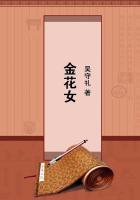SUBJECT MATTER AND METHOD P olitical economy, in the widest sense, is the science of the laws governing the production and exchange of the material means of subsistence in human society. Production and exchange are two different functions. Production may occur without exchange, but exchange -- being necessarily an exchange of products -- cannot occur without production.
Each of these two social functions is subject to the action of external influences which to a great extent are peculiar to it and for this reason each has, also to a great extent, its own special laws. But on the other hand, they constantly determine and influence each other to such an extent that they might be termed the abscissa and ordinate of the economic curve.
The conditions under which men produce and exchange vary from country to country, and within each country again from generation to generation.
Political economy, therefore, cannot be the same for all countries and for all historical epochs. A tremendous distance separates the bow and arrow, the stone knife and the acts of exchange among savages occurring only by way of exception, from the steam-engine of a thousand horse power, the mechanical loom, the railways and the Bank of England. The inhabitants of Tierra del Fuego have not got so far as mass production and world trade, any more than they have experience of bill-jobbing or a Stock Exchange crash. Anyone who attempted to bring the political economy of Tierra del Fuego under the same laws as are operative in present-day England would obviously produce nothing but the most banal commonplaces. Political economy is therefore essentially a historical science. It deals with material which is historical, that is, constantly changing; it must first investigate the special laws of each individual stage in the evolution of production and exchange, and only when it has completed this investigation will it be able to establish the few quite general laws which hold good for production and exchange in general. At the same time it goes without saying that the laws which are valid for definite modes of production and forms of exchange hold good for all historical periods in which these modes of production and forms of exchange prevail. Thus, for example, the introduction of metallic money brought into operation a series of laws which remain valid for all countries and historical epochs in which metallic money is a medium of exchange.
The mode of production and exchange in a definite historical society, and the historical conditions which have given birth to this society, determine the mode of distribution of its products. In the tribal or village community with common ownership of land -- with which, or with the easily recognisable survivals of which, all civilised peoples enter history -- a fairly equal distribution of products is a matter of course; where considerable inequality of distribution among the members of the community sets in, this is an indication that the community is already beginning to break up. -- Both large- and small-scale agriculture admit of very diverse forms of distribution, depending upon the historical conditions from which they developed. But it is obvious that large-scale farming always gives rise to a distribution which is quite different from that of small-scale farming; that large-scale agriculture presupposes or creates a class antagonism -- slave-owners and slaves, feudal lords and serfs, capitalists and wage-workers -- while small-scale agriculture does not necessarily involve class differences between the individuals engaged in agricultural production, and that on the contrary the mere existence of such differences indicates the incipient dissolution of smallholding economy. -- The introduction and extensive use of metallic money in a country in which hitherto natural economy was universal or predominant is always associated with a more or less rapid revolutionisation of the former mode of distribution, and this takes place in such a way that the inequality of distribution among the individuals and therefore the opposition between rich and poor becomes more and more pronounced. -- The local guild-controlled handicraft production of the Middle Ages precluded the existence of big capitalists and lifelong wage-workers just as these are inevitably brought into existence by modern large-scale industry, the credit system of the present day, and the form of exchange corresponding to the development of both of them -- free competition.
But with the differences in distribution, class differences emerge. Society divides into classes: the privileged and the dispossessed, the exploiters and the exploited, the rulers and the ruled; and the state, which the natural groups of communities of the same tribe had at first arrived at only in order to safeguard their common interests (e.g., irrigation in the East) and for protection against external enemies, from this stage onwards acquires just as much the function of maintaining by force the conditions of existence and domination of the ruling class against the subject class.















